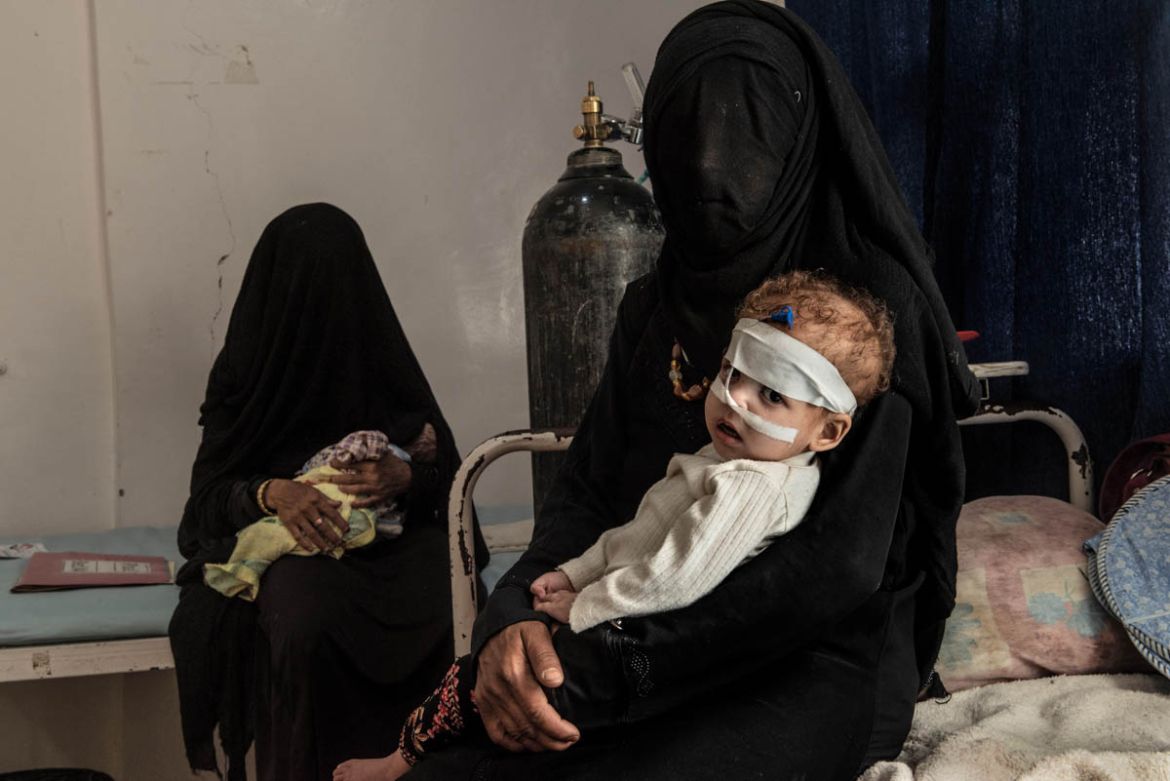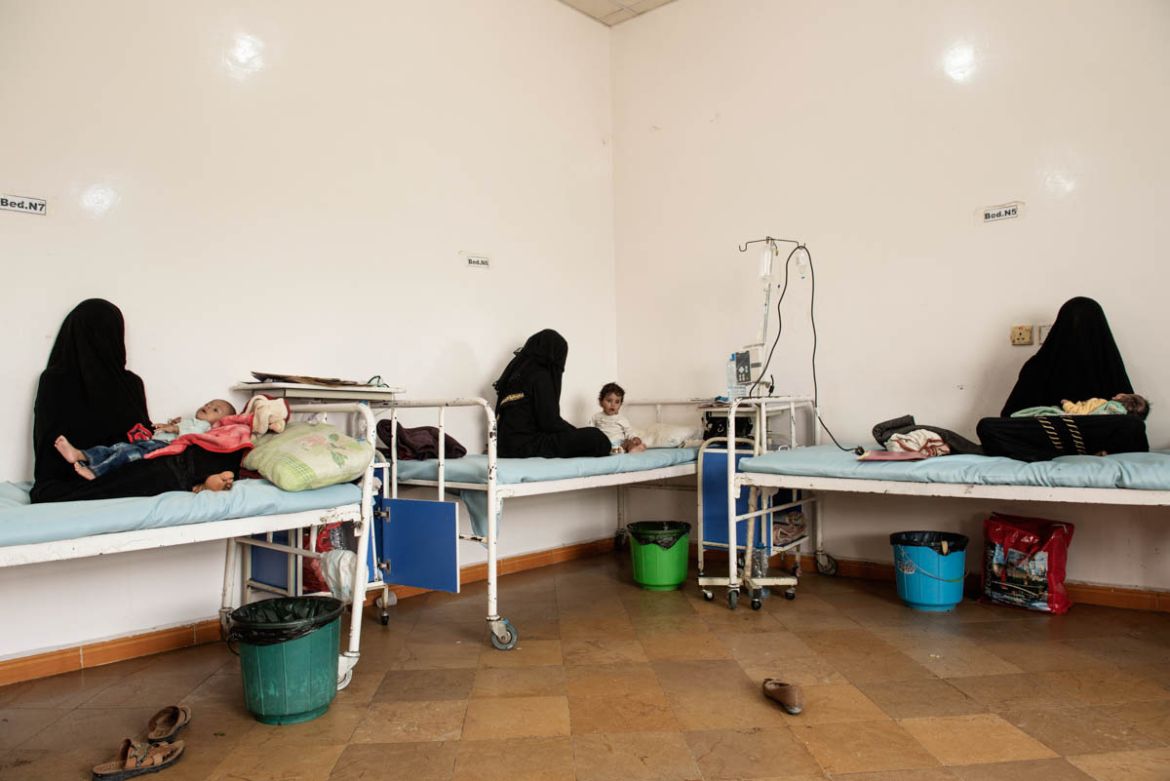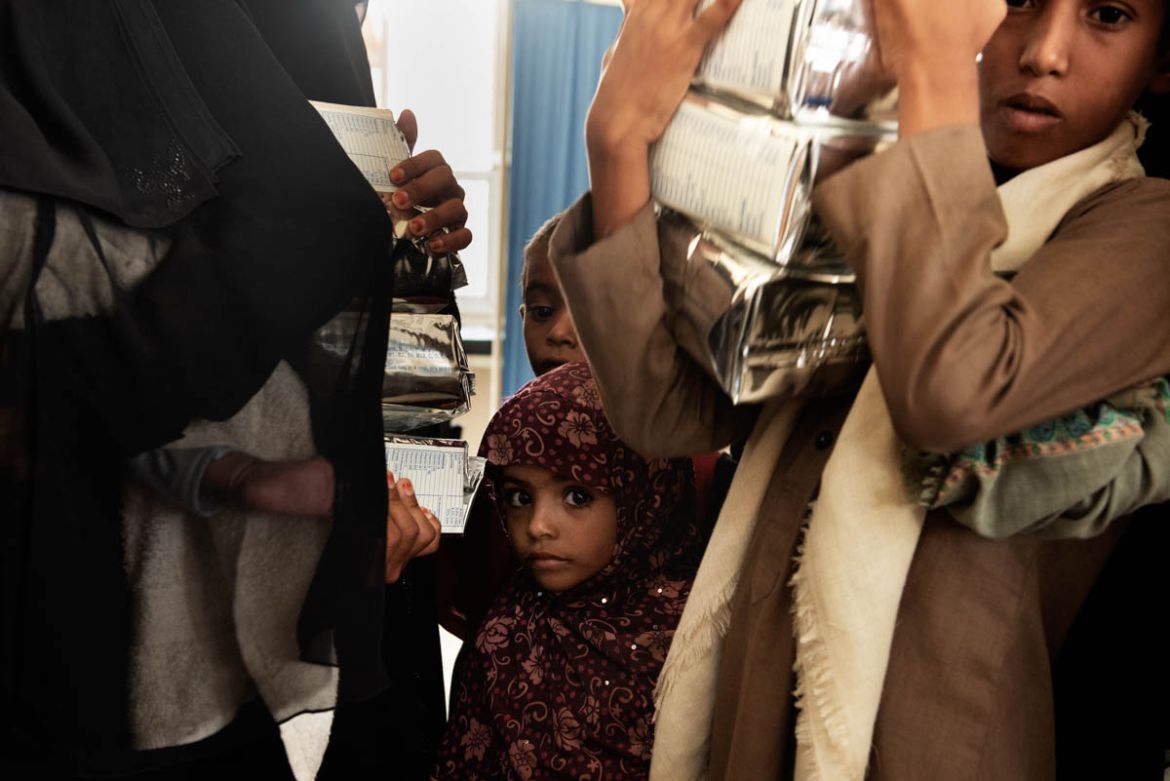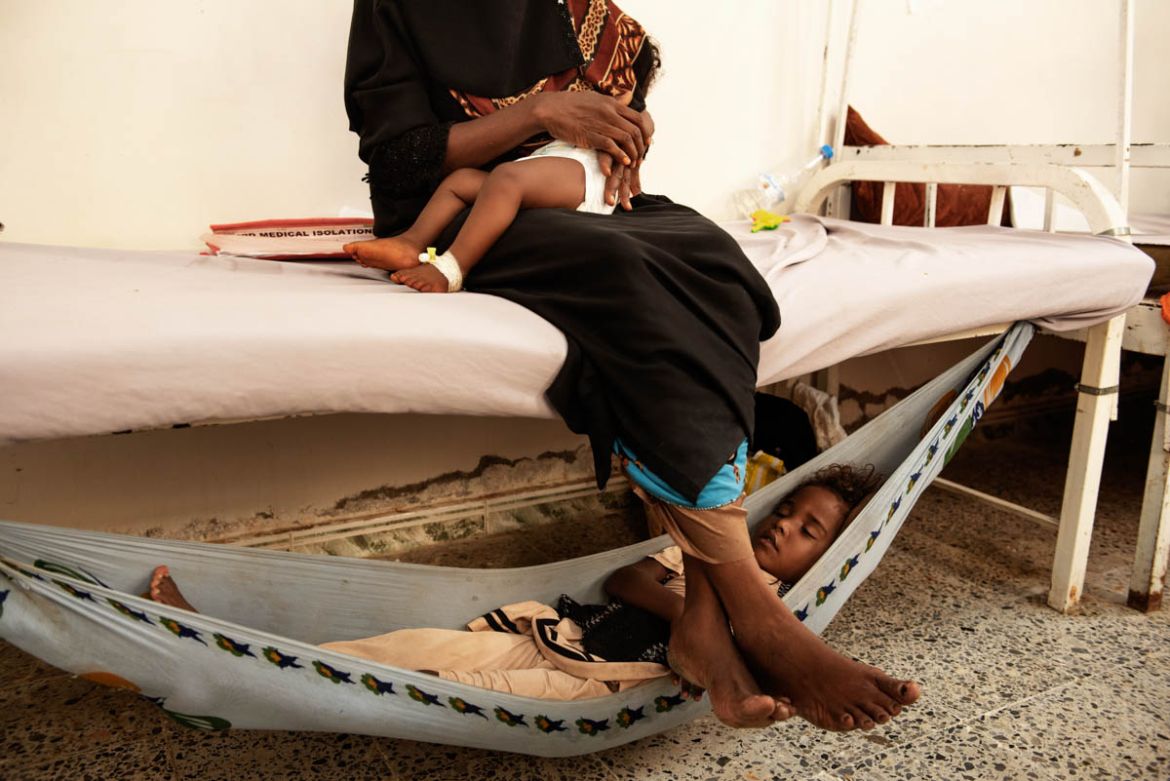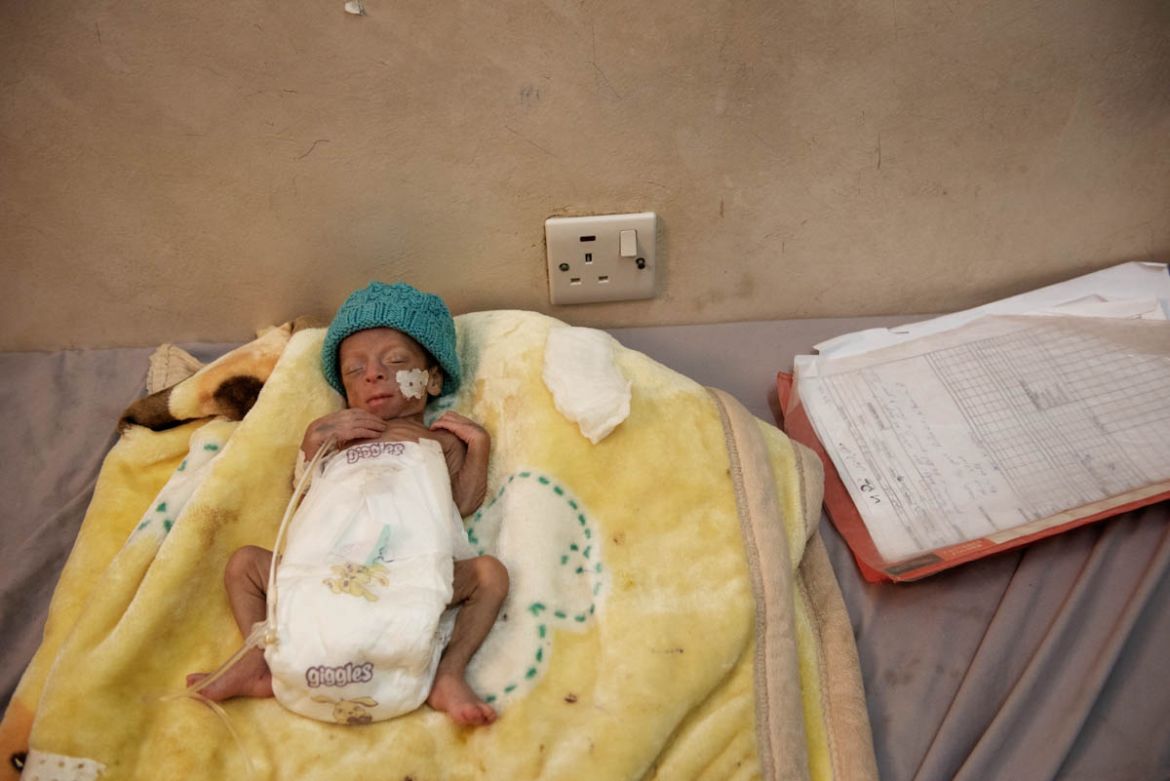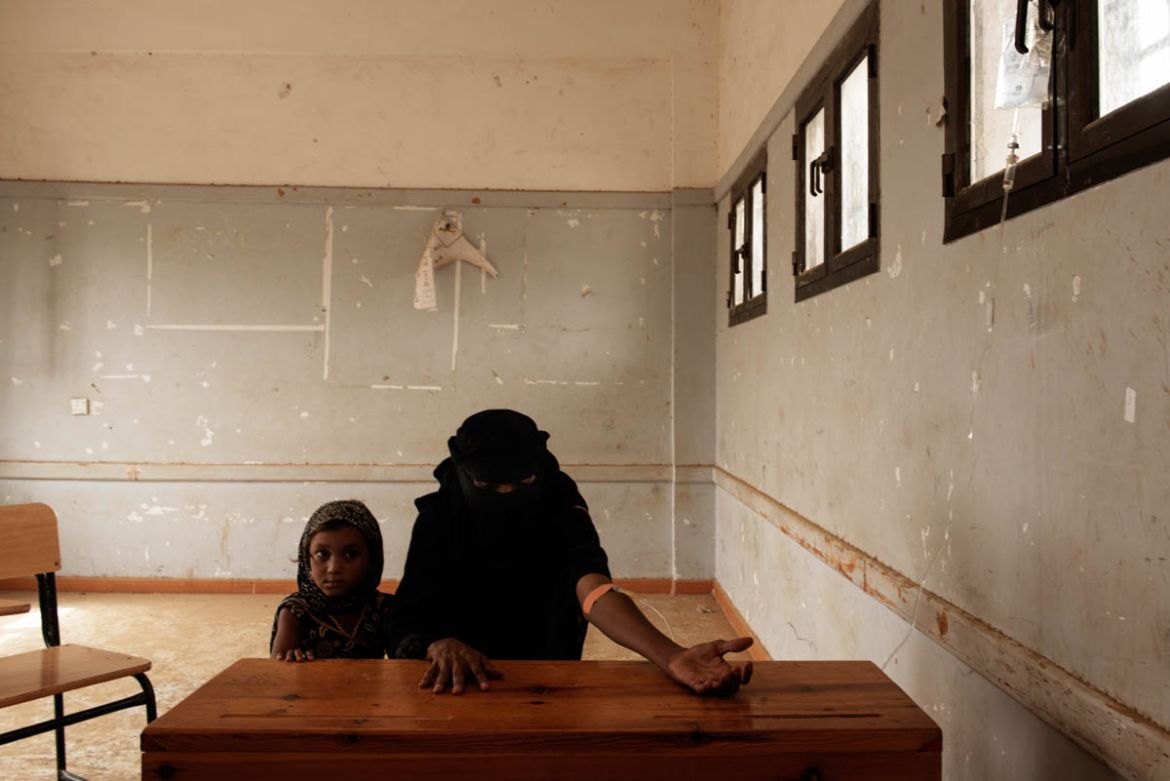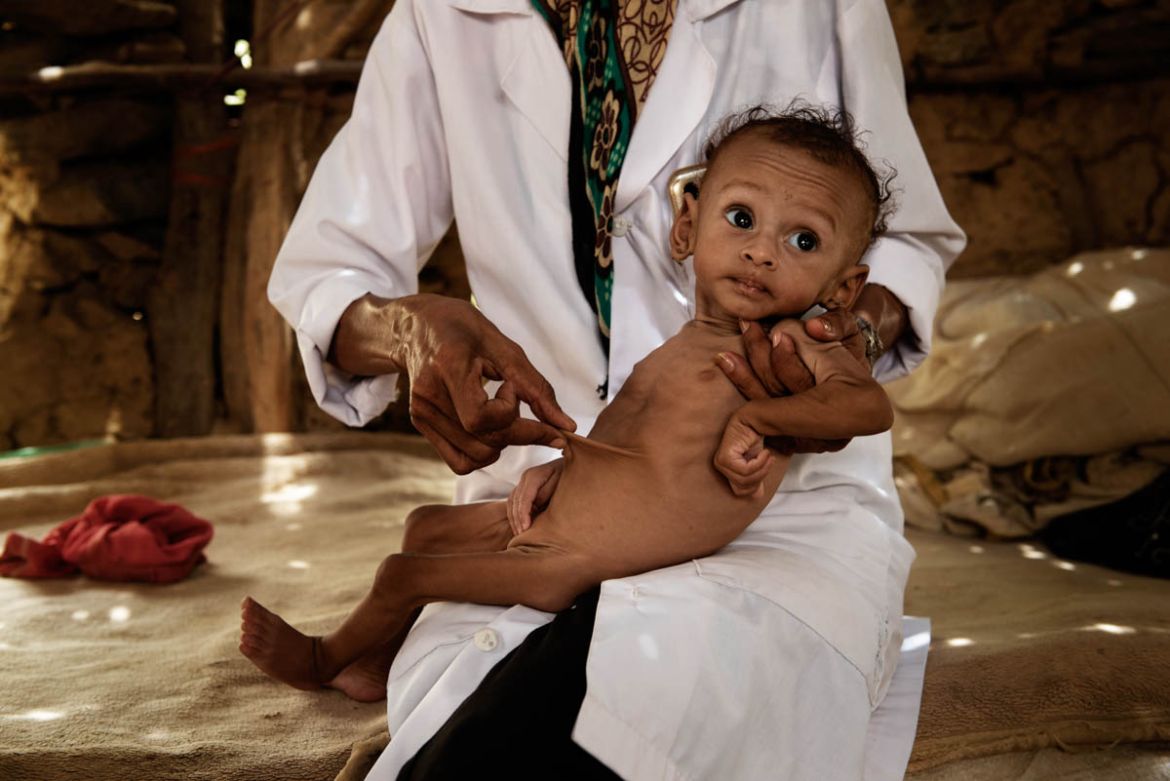In Pictures
In Pictures: Malnutrition, cholera add to Yemen woes
War-ravaged Yemenis, mainly children, suffer from malnutrition as humanitarian groups warn of unsafe drinking water.
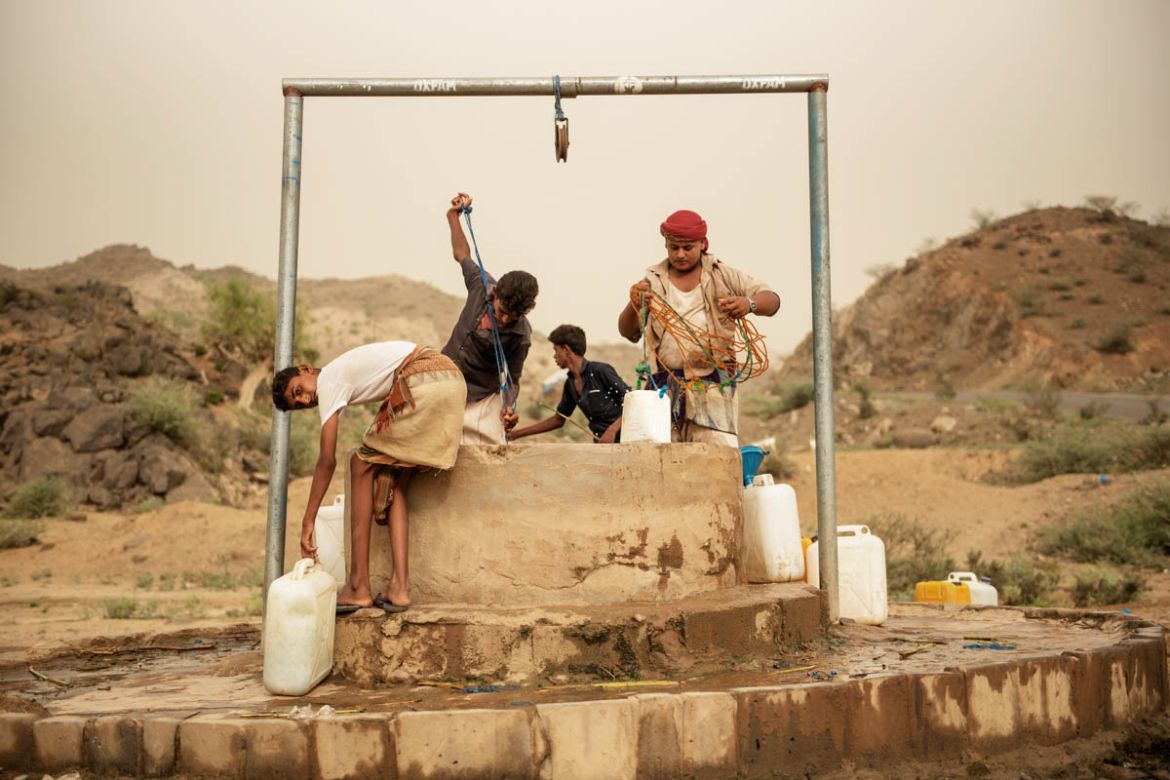
Hajjah province, Yemen – The five-year civil war in Yemen has killed more than 70,000 people and pushed millions to the brink of famine in what the United Nations calls the world’s worst humanitarian crisis.
Last month, a local non-government organisation said even the water supply in Yemen had been “weaponised”, referring to the country’s unclean water, which breeds cholera.
There are 18 million Yemenis with no access to drinking water.
In the past years, the shortage of drinking water triggered a cholera outbreak that impacted 1.2 million people, making the epidemic the largest in history.
According to the Yemen Data Project, a Saudi-led coalition fighting Yemen’s Houthi rebels has carried out 20,000 air attacks, one-third of which were on non-military sites, including hospitals and schools.
The damages, combined with an air, naval and maritime blockade imposed on the northern areas, have paralysed people’s access to basic goods.
At malnutrition prevention centres across the country, dozens of people queue every day for hours for a medical examination and a pack of soy.
Ahmed Mohammed Al Bahiali sits in the corridor of the distribution centre with his two-year-old daughter in his arms. The child is crying and he tries to calm her by giving her small sips of water.
“Today, my daughter is constantly vomiting. I brought her here hoping someone would see her. I don’t know if it is cholera or an infection,” he said.
“We are very poor. Before the war, I worked in Saudi Arabia. Today, I have no job, house nor the possibility of moving. Our situation is disastrous, we have only God’s help,” said the father of 11 children.
Ahmed said they do not have nutritious food to give the children. “They eat just flour every day. Sometimes they don’t get vegetables or fruit or milk for weeks.”
The thing that makes him suffer the most, he said, is feeling like a beggar. “The war took away my dignity.”
